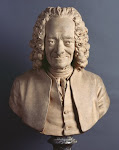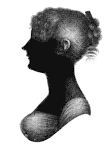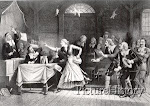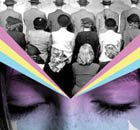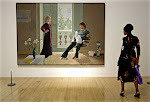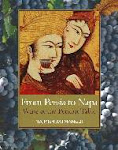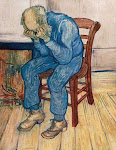"Somewhere towards the End"- Here is a blessing of a book, something given and redeeming like divine grace is supposed to work for believers. Except Diane Athill’s memoir, "Somewhere towards the End” is written by an atheist in her in her late eighties and pretends to nothing more than one woman’s pleasure in taking on the mystery, the pain and satisfaction of life. Some books do nourish the heart that lives day after day, just as others sap the life-force. This is not meant as a criticism for when it comes to writing I think writers have as much choice over their life-vision as say the shape of their faces. Let’s just say there’s no comparison between Athill’s humane wit and intelligence and the bleak dislike of human nature, or the narcissistic highkicks of market successes like Houllebecq, Anita Brookner, Martin Amis ..though perhaps the comparison isn’t fair since “Somewhere towards the End" is not fiction.
The natural voice talking can be more generous than what comes out in the art of fiction which can never be other than what is truly in the heart. She herself meditating the power of the written word later in a discussion of the bible suggests an answer that could just as well refer to her own book, “I think that underneath, or alongside a reader’s conscious response to a text, whater is needy in him is taking in whatever the text offers to assuage that need.”
Maybe Athill’s memoir feels so generous because rather than a writerly ego pressing needily for our admiration we are in the presence of a natural sense of proportion in all things. She herself points out that this finesse is the end-product of decades of ...life. She is now so old that with everything – including the market and critical success of her memoir, which is simply “fun,”
“none of it mattered at the deepest level, so all of it could be taken lightly”This comment is prefaced by an anecdote about accidentally bumping into an old schoolfriend who was never a beauty but has been ‘transformed’ by another’s loving vision of her as a seductive and beautiful woman,
“when you are young a great deal of what you are is created by how you are seen by others and this often continues to be true, even into middle-age” What pleasure to read of aging as a liberating process rather than a decline into emotional scelorosis and fixation on bygone grievances! Everybody knows that today we live in a sort of intergenerational apartheid with old people tucked away in nursing homes or hitting the headlines through scientific discussion of Alzheimer’s. In effect Athill’s book redresses a balance we have all been in need of for a long time. Her outlook in old age reaps the openness that has characterised most turning points in her life. The most oft-quoted incident of this trait (in book reviews I’ve read) being the ménage-à-trois she lived with an ex-lover playwright and director and his new girlfriend, an up-and-coming actress also to become a good friend of her own.
“certainly if I had still been in a physical relationship with him it would have pained me to see them together but because by then I had fully acknowledged withn my self that the sex between us was gone for good, it didn’t worry me.”
When this relationship came to an end in turn and the girlfriend left for a new life with another man the whole group including the children born to the couple remained in close, loving contact.
“noone could live through the sixties without hearing possessiveness condemned, even if they didn’t condemn it themselves. It’s true that many people are so neurotically possessive that they can’t bear seeing someone enjoying something even if they don’t want it for themselves, but I was not, and still am not, possessive like that – not because I had trained myself out of it but simply because wasn’t made that way. Luck not virtue for which I am grateful, having witnessed the miseries of jealousy.”
This sounds inhumanly self-controlled. However Athill makes no bones at the start of the book about earlier relationships in which she has had her heart broken, with ‘a sudden blow’ ‘from which it mended best’ compared to ‘slow strangulation’ the ‘worst sort’ of heart-break so what is speaking is the voice of collected experience. In fact, all her freedom in disloyalty, her pleasure in following her own desire outside the usual social models of male-female ‘pairing off’ is the result of a long trip during which she experienced as she says, the self-loss that woman endure since,
“sex obliterates the individuality of young women more often that it does that of young men because so much more of a woman than of a man is used by sex. ..every act of sex performed by a woman has the potential of changin her mode of being for the rest of her life. He simply triggers the existence of another human being; she has to build it out of her own physical substance, carry it inside her bond with it whether she likes it or not and to say that she has been freed from this by the pill is nonsense...Because of all this when they are at the peak of their physical activity woman often disappear into it, many of them discovering what kind of people the are apart from it only in middle age, some of them never. I had started to have glimpses of myself earlier than most, as a result of being deprived of marriage and child-bearing, but notwith the clarity I discovered once sex had fallen right away....”
My first query when reading this paragraph was at the equation of motherhood and sex as a decoy from true ‘selfhood’...Not that old early-feminist dilemma again with one feminine identity fatally cancelling out the other! Surely the whole point of Athill’s memoir is that it’s not the relationship itself but how it is lived out in a unique way apart from other peoples’ perceptions that provides the key to selfhood. How different would her reactions have been if her own children had been involved? Somehow you get the sense that she would have worked out an interesting childhood for them The only minor blind spot in the book is when she associates her own childlessness – in passing - with the lack of a maternal instinct. A ‘nub of coldness’. A damning little comment in contrast to her warm description of the need of ‘oldies’ in a state of decay and soon dead to keep up their morale with harmonious contact with the young, flitting in and out of our awareness’
“They (the young) are ‘beginning’ – the years ahead are long and full of who knows what.. a reminder ...enables us actally to feel again that we are not just dots at the end of thin black lines projecting into nothingness, but are parts of the broad, many-coloured river teeming with beginnings, ripenings, decaying, new beginnings – are still parts of it, and our dying will be part of it just as these children’s being young is, so while we still have the equipment so see this, let’s not waste our time grizzling...”
Athill’s ‘river of being’ is one of the book’s two great metaphors to be taken away and kept like the gem it is of useful wisdom - the secret of a real short-cut to acceptance through unnecessary pain. The other great metaphor is a gardening one. She loves gardens one of her many interests. Her partner on the other hand is in a state of physical decay with kidney and heart problems and severe diabetes has now given up interest in life and lies eating cream cakes, half-reading libary books and when hospitalised waiting for her to arrive in order to ‘move his bowels’. She helps him with cleaning himself up, observing herself with some surprise as she does so without being being bothered or disgusted,
“what (…) ..keeps me and, I am sure, innumerable other old spouses or spouselike people in similar situations, going through the motions of care? The only answer I can produce appears in the shape of a metaphor: in a plant there is no apprent similarity between its roots and whatever flower or fruit appears at the top of its stem, but they are both part of the same thing, and it seems to me that obligations which have grown out of love, however little they resemble what they grew out of, are also part of the same thing. How, if that were not so; could they be so effortlessly binding in spite of being so unwelcome? One doesn’t in these situations, make a choice between alternatives because there doesn’t seem to be an alternative. Perhaps a wonderfully unsefish person (and they do exist) gets satisfaction from making a good job of it. If you are a selfish one, you manage by contriving as many escapes and compensations as you can while still staying on the job. It’s not an admirable solution, but I don’t suppose that I am the only old person to resort to it.”
That plant flower so far away from its root – yes I see that around me in many relationships every day. Yes human beings so often compared to animals are also very like plants.
To return to my inital quotation from Athill’s reflexion on the power of the written word, what this memoir ‘assuages’ for me personally is the need so rarely met, to have words put on the experience of irreligiosity. “faith” she says, “the decision to act as thoughyou believe somethng you have no reason to believe, hoping that the decision will bring on belief and then you will feel better - that seems to me mumbo-jumbo”She does go on though with characteristic fair-mindedness to analyse our debt to the advantges of a social sysem of common good basd on the best of religious feeling...perhaps this i an Anglo – Anglican concept of ‘religion’? From where I am in France at least, social progress from the eighteenth century illuminaries onwards is a side effect of the separation of the state from the church along with the feudal system and divine right of monarchs. Athill’s best contribution to the description of the atheistic outlook is her pointing out the sense of joy and mystery that surrounds it rather than the nihilism and depression that most people associate with lack of belief in a deity,
“we on our shortlived planet are part of a universe incaluably ordinary in that there it is and incalculably mysterious in that it is beyond our comprehension..(this) does not feel like believing in nothing and would never make me recruit anyone for slaughter.”
By far the best line is her repeating a phrase uttered by another student whilst punting one night after a party at the end of her time at Oxford, why believe in a First Cause, he puts to her,
‘might is not be that beginnings and endings are things we think in terms of simply because our minds are too primitive to conceive of anything else?”
She hears this sentence and looks up at the starry sky with a thrill of wonder at the natural world that lasts all her life.
And... oh... Yes. I find myself leaving the most important aspect of this book to the very end. The deep reason why you pick it up to read in the very first place since you know it is written by a near-nonogenarian in her right mind ...I mean the search that is always there in us, for words on how to die. Or how to live so close to “the end” in the title. Now here’s a lesson I personally have been lucky enough to be able to close my eyes to for the best part of four and a half decades. Modern occidental life doesn’t rub your nose in death. Athill herself didn’t see a cadavre until her seventies.
The first lesson in her chapters on death placed near the start of the book so that she can move on to other aspects... is how like giving birth it sounds. Like when you are pregnant and wrapping your mind around what will happen to you and all you can do is turn to family antecedents to weigh up your probability of having a good time or not. The stories you hear from those around you of good ones and bad ones. The sense too that there’s not much point in wasting too much time over what we cannot control because “whatever happens I will get through t somehow, so why jib at it.” Athill’s own family members died suddenly or like her mother after a long life and peacefully without prolonged pain. A good death is when someone you love is there to help you when you are frailest – ‘usually a daughter,’ she says. She also points out that it’s normal that there should be this system of inter-generational aid
“for people to look after children when they are young and to be looked after them when they are old, is the natural order of events - though stupid or perverse parents can dislocate it. My mother was not stupid or perverse.”
All very neat and packaged, like all her philosophy it’s the end-result of years’ reflexions and experience.
As for the wider questions as to what makes people ‘stupid and perverse’, well, she is very fair about that too. An unfortunate event can bludgeon any human being’s self-esteem that’s all there is to it. The recipe for happiness is luck as well as intelligence and ..more luck...
“if one has no money or ill-health, a mind never sharpened by an interesting education or absorbing work, a childhood warped by cruel or inept parents, a sex life that betrayed one into disastrous relationships...if one has any one, or some or all of those disadvantages or any one, or some, one of all of the others that I can’t bear to envisage, then whatever is said about old age by a luckier person such as I am is likely to be meaningless, or even offensive. I can only speak to and for the lucky. But there are more of them than one supposes, because the kind of fortune one enjoys , or suffers, does not come only from outside oneself. Of couse much of it can be inflicted or bestowed on one by other, or by things such as a virus, or climate, or war, or economic recession; but much of it is built into one genetically, and the greatest good luck of all is built-in resilience.”
As an example she quotes an interview in ‘the Guardian’ in which a 103-year-old woman pianist, an Austrian holocaust refugee who has lost her only son still manages to finds beauty in life. She has the great good luck of being born creative, Athill points out with admiration. Also of being gifted with the insight that reads experience as a passionate mix neither one extreme nor the other. Everybody in the world, says the pianist, is
“half good and half-bad...(only there are) situations in which the good comes out and in which the bad comes out..”
Athill sees herself as a lot farther down on the scale of iconic courage. One of my favourite anecdotes from the book is her reminder to herself of the danger of over-enjoying her own reflection in the eyes of the younger people she is fond of. She reminds herself of a honeymoon couple in their late forties she saw when she was around nineteen, “smooching on the dance floor ....(...) thinking with disgust ‘I suppose that old people must ‘make love’...but they ought to have the decency not show it..’and I was a kind, well brought-up girl who would not have dreamt of betraying that response if I had been face to face with them.” Her own response to that young girl in the young people around her is vivid after nearly a century of life lived,
“I am convinced that one should never, never expect them to want one’s company or make the kind of claims on them that one as on a friend of one’s own age.” She finishes up, “Enjoy whatever they are generous enough to offer, and leave it at that” That’s exactly the balance of sharpness and right contentment so near to both our enjoyment of Athill’s book and her own satisfaction with life.

